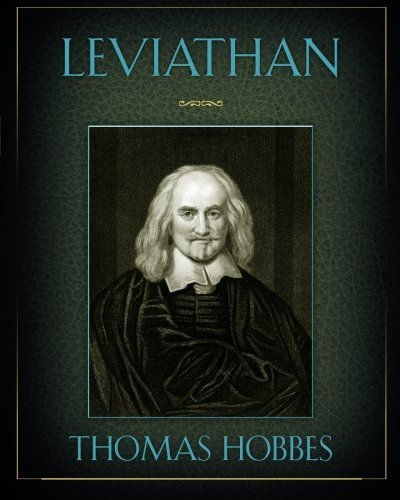Hobbes is born in April 05. 1588 in Mansbury in the family of a rural priest. He graduated from university thanks to the donation of an aristocrat. He works as a governess, companion of a lord, and a mathematical teacher of the future King Charles VI. He lives and works during the British bourgeois revolution. Long Parliament Period; restoration; Cromwell's protectorate; a social political destiny filled with many treacheries. 1679 dies. He falls into a situation of his own among foreign and foreign "among his own".
Hobbes is a philosophical mathematician and attempts to mathematicize philosophy, but his works have a relation to the law. Hobbes accepts and starts from Bacon's brilliant experience to turn philosophy into an accurate and experienced science. He realizes that the complete induction is practically inaccessible. This suspicion leads him to revert to the respect of mathematics. She draws it with its precision. Hobbes follows Bacon's main line on the question of the place and role of philosophy, but Hobbes assumes that it is more accurate to make philosophy a strictly deductive science. Russell - "Hobbes philosophical facet is difficult to determine because it combines two opposing trends - Bacon's empiricism and ...". His philosophy is a combination of mechanistic, mathematical ontology and rationalist methodology. Hobbes is more consistent in applying mechanics; rejects the diverse picture of the world proposed by Bacon.
He believes that the real philosophy must be subordinate to mathematics and mechanics. Physics is a major science. "Philosophy has only a reality. It deals with relationships and causes between things ... "Philosophy as" rational theoretical knowledge of relationships and relationships in reality. "About Hobbes philosophy is a science of causality, science in answer to the question WHY? Is not there because there is no science, no philosophy. Identifies science with philosophy. Every common knowledge is philosophy.
"Science is knowledge of the implications, which is called philosophy." Where there is room for reasoning, there is room for philosophy. The one who thinks he is a philosopher. Philosophy is the natural reason inherent in every person. Philosophers are those who claim to be able to reason. He tries to distinguish knowledge from facts from knowledge of reason. It distinguishes philosophy from both everyday knowledge and knowledge based on religious belief. The real science is ascetic, it is rather indiscriminately dry and almost outrageous. Ideal, a prototype of knowledge. This strict mathematization requires the philosophy to be accurate, to have a method of application.

Haven't read much on Hobbes other than basic introductions. Is his Leviathan State just an Authoritarian state or does his state have unique characteristics?
Downvoting a post can decrease pending rewards and make it less visible. Common reasons:
Submit
Well, as you know Leviathan is a biblical monster, symbolizing the power of matter and the dominion of nature that degrades man. Hobbes uses this biblical image symbolically to describe the power of the state as sovereign over the individual (state power as "mortal God"). And he writes writes that the chaos or civil war can only be avoided by strong central government. In this way he denies the right to rebellion to the public contract. But Hobbes takes into account the possible breakdown of the state. While the social contract was made to establish a state that provides "peace and protection" to the people, the treaty would be meaningless if the government did not protect its citizens. In such a case, the person would automatically return to his natural state until the creation of a new public contract.
Downvoting a post can decrease pending rewards and make it less visible. Common reasons:
Submit
Is China an example of a kind of Leviathan state? It has a stong central government that has its citizens tacitly consenting to its authority in exchange for certain rights, freedoms and economic properity. In other words, a soft authoritarianism.
Downvoting a post can decrease pending rewards and make it less visible. Common reasons:
Submit
Yes. I recommend to you one Russian film "Leviathan " by Andrey Zvyagintsev you can see there how this biblical monster function :)
https://www.imdb.com/title/tt2802154/?ref_=nv_sr_2
Downvoting a post can decrease pending rewards and make it less visible. Common reasons:
Submit
Thanks, will definately check it out.
Downvoting a post can decrease pending rewards and make it less visible. Common reasons:
Submit
Thoughts?
Posted using Partiko Android
Downvoting a post can decrease pending rewards and make it less visible. Common reasons:
Submit
You got a 41.13% upvote from @minnowvotes courtesy of @godflesh!
Downvoting a post can decrease pending rewards and make it less visible. Common reasons:
Submit